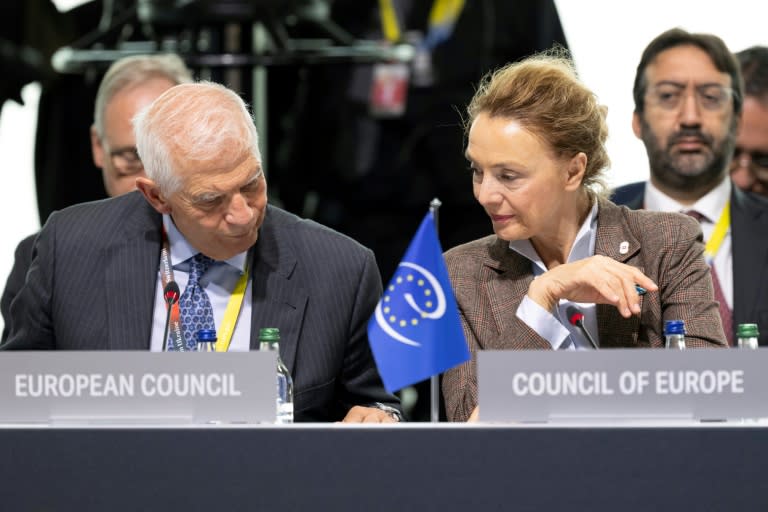Council of Europe chief says far-right rise risks return of 'the wild state'

The rise of far-right parties in several countries is pulling Europe towards a "wild state", but the outgoing head of the Council of Europe said Friday she did not believe Britain and France would leave the body after looming elections.
Marija Pejcinovic Buric, who will stand down as secretary general of the rights body in September, said that despite criticism of the 46-nation institution by British and French right wingers, Europe had no alternative to taking a "multilateral" path to solve its problems.
"We see very well in Europe and around the world that there are nationalist extremists, populists and anti-rights movements who are pulling the world, or Europe, into a wild state," the former Croatian foreign minister told reporters.
Buric highlighted how the creation of the Council in 1949 had followed two devastating wars and said there was "no alternative" to multilateral action.
"It is not without reason that after the two big wars in Europe, it was decided that the multilateral path, multilateral cooperation, was the path to take," she said.
Russia was excluded from the council after its 2022 invasion of Ukraine. And calls have been made in Britain and France, which will each hold national elections in coming weeks, to withdraw from the European Court of Human Rights and the European Convention on Human Rights.
But Buric said it was hard to believe that the two key countries would leave the council.
"It is easier to attack international bodies or human rights defence organs, but I hope that when the elections have passed we will hear more reasonable voices that exist in these two countries," Buric said.
Buric said that increased anti-Semitism reported across Europe was one of the "different faces of the democratic retreat" in the continent.
"One would never believe... that with all that has happened to the Jewish people that this could happen again on European soil," she said.
A new council leader is to be elected Tuesday by the body's parliamentary assembly. Three candidates are standing -- European Union justice commissioner Didier Reynders of Belgium, former Swiss president Alain Berset and former Estonian culture minister Indrek Saar.
bar/tw/rlp

